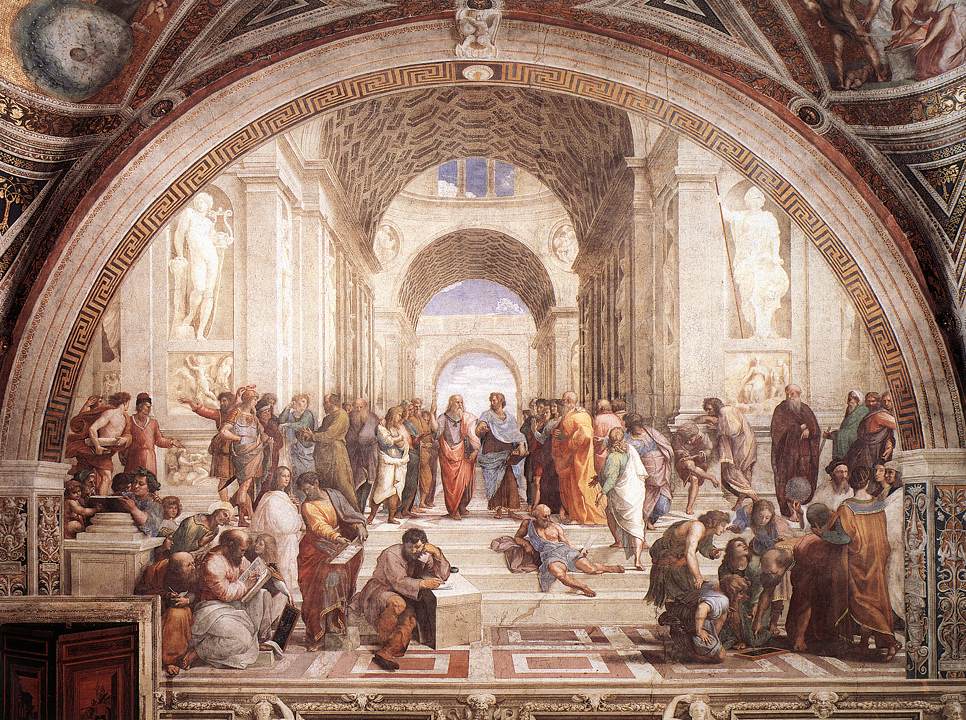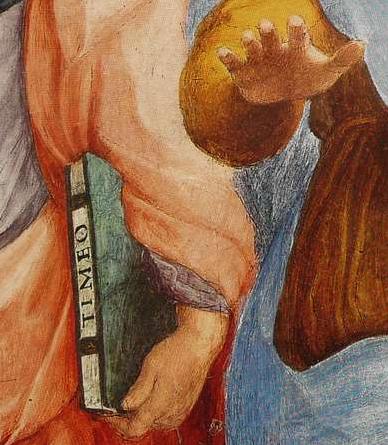Author: Thorwald C. Franke
Publisher: Books on Demand
Publication date: October 2012
Paperback: 136 pages
Preview PDF
ISBN: 978-3-8482-2791-4
Find it e.g. on AbeBooks.com / .uk / .de
Siehe hier die deutsche Ausgabe 



|
Author: Thorwald C. Franke |
Aristotle considered Plato’s Atlantis to be an invention; so we read time and again – but is this really true? Until the late 19th century, academia still held the opposite opinion. How did this shift in opinion take place? And was it justified?
Over 100 works from the Atlantis and Aristotle literature, from antiquity to the Renaissance, from the 18th to the 21st century, were examined in order to track down the truth. A scientific adventure regarding Aristotle’s opinion about Atlantis unfolds step by step, starting 200 years ago and reaching into the present.
What did the great philosopher and disciple of Plato really think? All the relevant passages from Aristotle’s works as well as all the steps taken during the literary research are documented in the appendix.
Listen to a 6 minutes chat about the book, created by AI, thanks to academia.edu:
Important hint: You can find a list of scientists who changed their opinion about Aristotle and Atlantis in connection with this book on the page My successes ...
Prof. Heinz-Günther Nesselrath: (Professor of Classical Philology in Göttingen; Atlantis skeptic)
"... Franke has comprehensively examined this attribution [of Aristotle's authorship], and thereby undermined its supposed certainty so much, that since then it cannot be assumed any longer with unconcerned conscience that here actually Aristotle is speaking." (translated by Thorwald C. Franke)
Prof. Nesselrath: Bemerkungen (PDF, German) among others about the Aristotle question.
Thorwald C. Franke: Besprechung (PDF, German) Comments on the remarks of Prof. Nesselrath.
Mark Adams: (New York Times bestselling author, in: Meet me in Atlantis p. 181 f.)
Franke was diligent about his philological research, to the extent that he had self-published a nifty bit of textual detective work, Aristotle and Atlantis, that examined the sources of Aristotle's supposed doubt. ... Franke argues convincingly that the Aristotle quote can be traced to a conflation of two similar-sounding passages ... Over the years a misinterpretation hardened into fact.
What I found even more interesting in Franke's book was his argument that not only hadn't Aristotle objected to the idea of Atlantis, but also in many of his works he seems to confirm some belief in its veracity. ... Aristotle – crucially – affirms his teacher's ideas that knowledge is discovered and lost repeatedly in cycles and that 'mythical traditions are remnants of knowledge from before the last cultural demise,' Franke writes. Franke concludes that ... we can deduce from Aristotle's 'eloquent silence' that at the very least the second-greatest Western philosopher didn't consider the lost island an outright fabrication.
Tony O'Connell: (Atlantipedia.ie)
When I began my own research the prevailing understanding was that Aristotle had rejected the story of Atlantis as an invention. Franke’s study has turned this idea completely on its head ... – (Franke) has carried out extensive research that brought him back to 1587 when a commentary on Strabo was published, which in turn was badly misinterpreted in 1816 by Jean Baptiste Joseph Delambre ... – If the work of one person, Delambre, initiated nearly two centuries of misinformation, I hope that another individual, Thorwald C. Franke, can now begin to redress that situation. This book is a ‘must read’ for anyone interested in a serious study of the Atlantis question.
Stel Pavlou: (author)
Franke has written a meticulous and fascinating book that unravels a key untruth often relied upon in academia. This book has been quite influential and a number of academics have removed or no longer reference that Aristotle was an Atlantis sceptic.
Melville E. Nicholls: (author)
It is a technical and very careful analysis. ... – It is an interesting story how this false claim came to be made and accepted as fact amongst academia ... – This work is essential reading for any serious researcher of Plato’s tale, and an important bulwark against those who continue to insist without factual evidence that Aristotle believed Plato invented Atlantis. Its conclusions were very important in formulating my own speculations on the Atlantis story.
|
|
The author Thorwald C. Franke can be contacted by e-mail:
info@atlantis-scout.de
Requests for free copies: Everybody who is willing to write a public review (in journals, blogs, Amazon, wherever) can ask for a free copy. Please provide the name of the publication where the review will be published, and a postal address for shipment.
Addenda & Corrigenda: If you have found an error, please report the error to the author! All errors are collected in the following public PDF (one PDF for German and English edition) and will be considered in a possible next edition:
Rudberg_AtlantisSyracuse_Addenda.pdf


Preface 11
Introduction 13
The Implicit Argument 15
The Arguments against Atlantis 15
No mention of Atlantis 15
No room for Atlantis 16
No Atlantis in the Atlantic 16
Opposition to Plato 16
Many more relevant Aristotle passages 16
Geography 17
Geology 18
Cyclical catastrophism 18
Political 19
Rhetoric and Poetics 20
Pseudo-Aristotelian passages 21
Insignificant passages 21
The Aristotle passages support the existence of Atlantis 22
Land between Gibraltar and India 22
Mud west of Gibraltar 23
Enough room for Atlantis 24
Cyclical catastrophism 25
Catastrophic geology 26
Political 27
Rhetoric and poetry 28
Pseudo-Aristotelian passages 29
Aristotle’s eloquent silence 29
Atlantis not overlooked 30
Disagreement with Plato? 30
Opposition to Plato? 30
Aristotle's opinion on Atlantis 31
Overcoming the bipolarity of ‘for’ and ‘against’ 31
Uncertainty 32
Uncertainty leaning towards existence 32
Ancient and modern authors 33
Posidonius 33
Other ancient authors 34
Modern authors 35
Summary of the implicit argument 37
The explicit argument 39
The arguments against Atlantis 39
The passage Strabo 13.1.36 39
The passage Strabo 2.3.6 40
The Proclus In Timaeum passages, I 1,190 and1,197 41
Passages in the original text 41
The direct counter-argument 42
Third- and fourth-hand speech 42
Use of an Aristotelian statement 43
Strabo does not mention Aristotle 44
A winged word 44
The analogous wording says nothing 44
An illustrative example 45
The expanded counter-argument 46
Nobody adopts Aristotle's alleged assertion 46
Who is making the invention assertion? 46
Vidal-Naquet versus Festugière 47
Invention assertion about the island? 48
Perhaps a statement by Aristotle after all? 48
Excursus: Strabo’s opinion of Plato’s Atlantis 49
Genealogy of the error 50
The authors in dispute on Strabo 2.3.6 51
Evolutionary tree of the error 53
The strange handling of Strabo 2.3.6 55
How did the error become established? 57
Delambre versus Ali Bey and Bailly 57
Berger versus Donnelly 59
Couissin versus SEA and Paul Le Cour 60
The “critical mass” is reached 61
A collective error 61
Who suffers from the error? 62
Summary of explicit argument 62
Closing thoughts 63
Appendix A: Basic Chronology 65
Appendix B: The Ancient Sources in Excerpts 67
Aristotle – Geographical 67
The “Columbus passage” 67
The “Mud passage” 67
The “Interrupted Oecumene passage” 68
Pseudo-Aristotle – Geographical 69
The “Continents passage” 69
The “Island of the Carthaginians passage” 69
The “Sargasso Sea passage” 69
Aristotle – Geological 70
The “Aggradation/Submergence passage” 70
The “Earthquake passage” 71
The “Tsunami passage” 71
The “Island Earthquake passage” 72
Aristotle – Cyclical catastrophe scenario 72
The “Aether-in-De-caelo passage” 72
The “Aether-in-Meteorologica passage” 72
The “Mythical Tradition passage” 73
The “Syssitia passage” 73
The “Proverb passage” 73
The “Catastrophe of the Flood passage” 74
Aristotle – Political 74
The “Republic-Laws passage” 74
The “Godlike Übermensch passage” 74
Die “Diminishing Virtue passage” 75
The “Co-regents passage” 75
The “Superior Dynasty passage” 75
The “Athenian Constitution passage” 76
The “Kingship-from-the-Beginning passage” 76
Aristotle – Rhetoric and Poetics 76
The “Factual-Text-in-Prose passage” 76
The “Epic-in-Hexameter passage” 77
Later authors 77
Polybius 77
Pliny 78
The Strabo 2.3.6 passage and its surroundings 78
Strabo 2.3.6 78
Strabo 13.1.36 78
Proclus In Timaeum I 1,190 79
Proclus In Timaeum I 1,197 79
Appendix C: Literature research on Strabo 2.3.6 81
Antiquity and the Renaissance 81
Second half of the 18th Century 82
First Half of the 19th Century 84
Second Half of the 19th Century 88
First half of the 20th Century 93
Second half of the 20th Century 99
First half of the 21st Century 107
Appendix D: Strabon / Poseidonios / Aristoteles? 113
Appendix E: Works Cited 117
Appendix F: Supplement to the English Edition 131
Theophrastus in support of the existence of Atlantis 131
Theophrastus’ fragment on Plato’s Atlantis 132
A modern myth: Aristotle and Atlantis in the Middle Ages 133
Truly no other author before Delambre? 134
More context to Berger's Atlantis article 134
Editor's notes on the English edition 136